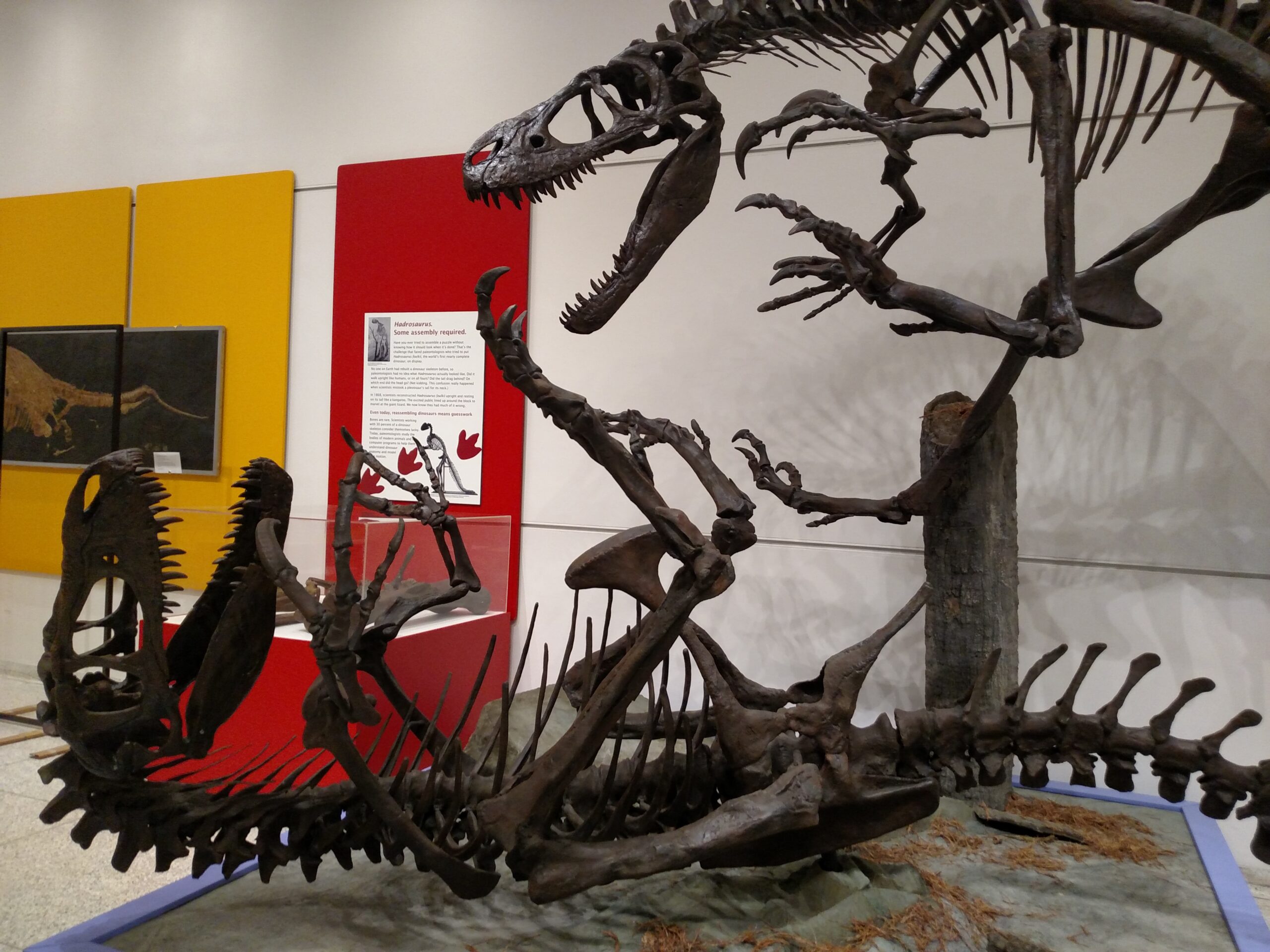TRENTON – The New Jersey State Museum (NJSM) is pleased to announce the return of dinosaurs to the Natural History Hall. “Written in the Rocks: Fossil Tales of New Jersey” is open to the public. The exhibition delves back in time to explore the progression of life from the oldest fossils up through the Ice Age, and debuts Jersey’s own Dryptosaurus, the world’s first nearly complete carnivorous dinosaur, reconstructed and displayed for the first time ever. The exhibition, part of the ongoing renovation of the NJSM Natural History Hall, is made possible in part by a $250,000 gift from NJM Insurance Group.
“NJM has been a steadfast supporter of the State Museum and I am pleased to recognize this partnership committed to education and discovery in the Garden State,” said Lt. Governor Kim Guadagno. “I thank NJM, the New State Museum Foundation and the staff of the State Museum for their work to preserve our past and inform our future.”
“Written in the Rocks: Fossil Tales of New Jersey” steps back 3.5 billion years to explore the geology of New Jersey, the oldest fossils from the state, and the evolution of life here through ten unique fossil stories. The examination of fossils provides clues about our ever-changing planet and how life on Earth has evolved and adapted. Fish, amphibians, turtles, birds, reptiles and mammals are explored in turn. Visitors will be awed by the first-ever mounting and display of two Dryptosaurs, the world’s first known carnivorous dinosaur, which was discovered in southern New Jersey in 1866 and is the eastern cousin of Tyrannosaurus rex.
“We are very excited to open this exhibition and have life-size dinosaurs in the Natural History Hall again,” said NJSM Curator of Natural History David Parris. “Dinosaurs were a highlight for generations of New Jerseyans who visited the Museum, and we are pleased to once again be able tell the story of these fossils, New Jersey’s role in their discovery, and how they relate to our planet.”
“NJM is proud to support the NJSM, a cultural, historical, scientific and educational gem in our capital city of Trenton,” said Bernie Flynn, NJM’s President and CEO. “The State Museum allows all of us to explore our past, reflect on the present and aspire to future advancements in art, science and history. ‘Written in the Rocks’ is sure to excite and educate Museum visitors of all ages, and we are pleased to be part of this exciting project.”
“NJM has been a great friend to the NJSM Foundation and the State Museum, and we truly value our partnership and shared commitment to the people across our state that the Museum serves,” said Karen Ali, President of the NJSM Foundation. “We look forward to building on this rich history of collaboration and to even greater success in the years ahead.”
In March 2014, the Museum opened the Paleo Lab and STEAM Center. The Paleo Lab offers visitors the chance to see the latest fossil finds first hand, learn how these specimens are prepared for study and display, and interact with scientists advancing research. The STEAM Center, an adjoining instructional space, offers a hands-on program along with science, technology, engineering, art and mathematics learning activities and workshops.
The museum will host a day of opening celebrations on Saturday, July 16, from 10 a.m. to 3 p.m. The first 100 children (under age twelve) will receive a free pair of dinosaur-themed sunglasses. Planned activities include a make-and-take dinosaur craft, as well as a dino-themed photo booth for fun pictures. Visitors can stop at the Paleo Lab and learn about new fossil discoveries, including a rare fossil crocodile recently found in Burlington County. Families with young children are encouraged to stay for story time in the Discovery Den at 2 p.m. where ‘Seashells by the Sea Shore’ will be read.
Located at 205 West State Street in Trenton, the Museum is open Tuesday through Sunday from 9 a.m. – 4:45 p.m. Closed Mondays and all state holidays, the museum has a suggested admission fee of $5 for adults and $4 for seniors and students with valid ID. Children twelve and under are free. Admission fees support the museum’s collections, exhibitions and programs.

